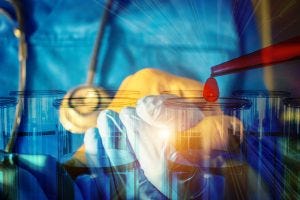October 21, 2020

AGC Biologics looks set to start making Orchard Therapeutics’ Libmeldy after an EMA panel recommended the gene therapy be approved.
The agency’s the Committee for Medicinal Products for Human Use (CHMP) recommended approval last week, explaining Libmeldy (cryopreserved autologous CD34+ cells encoding the arylsulfatase-A, or ARSA, gene) slows down progression of the lysosomal storage disease, metachromatic leukodystrophy (MLD).
Orchard CEO Bobby Gaspar welcomed the recommendation. He said it “brings us closer to delivering a one-time, potentially transformative therapy for eligible children suffering from this devastating disease.”

Image: iStock/CIPhotos
The European Commission, which usually follows CHMP recommendations but is not bound to do so, is expected to make a final decision before the end of the year.
The positive news is also good for gene therapy contract development and manufacturing organization (CDMO) AGC Biologics which will manufacture the product if it is approved in the EU, according to an Orchard spokesperson.
“We have publicly stated our CDMO partner for Libmeldy, if approved in the EU, will be AGC Biologics S.p.A.”
Disease
MLD is a rare genetic condition caused by mutations in the ARSA gene which lead to neurological damage and developmental regression. Most sufferers pass away in childhood, with palliative care often as their only option.
Libmeldy is designed as a one-time therapy for MLD. It is made from hematopoietic stem cells (HSCs) selected from the patient into which functional copies of the ARSA gene are inserted using a lentiviral vector.
When reintroduced into the patient the modified HSC cells cross the blood-brain barrier intro the brain where they engraft and express a functional version of the enzyme encoded by the ARSA gene.
Manufacturing
AGC Biologics has facilities in Japan, Denmark, the US and Germany.
It also has development and manufacturing sites in Italy that it added through the acquisition of cell and gene therapy specialist Molecular Medicine S.p.A in July.
The sites are in Milan and Bresso, both in Italy. The former house 16,000 square-feet of development, testing, and production space.
According to AGC the Milan site has made over 150 GMP batches of viral vectors and 200 batches of genetically modified cells to support more than 20 clinical trials in Europe and the US.
The 35,000 square-foot Bresso site has capacity to produce viral vectors and genetically modified cells for clinical trials and commercial products.
About the Author
You May Also Like







